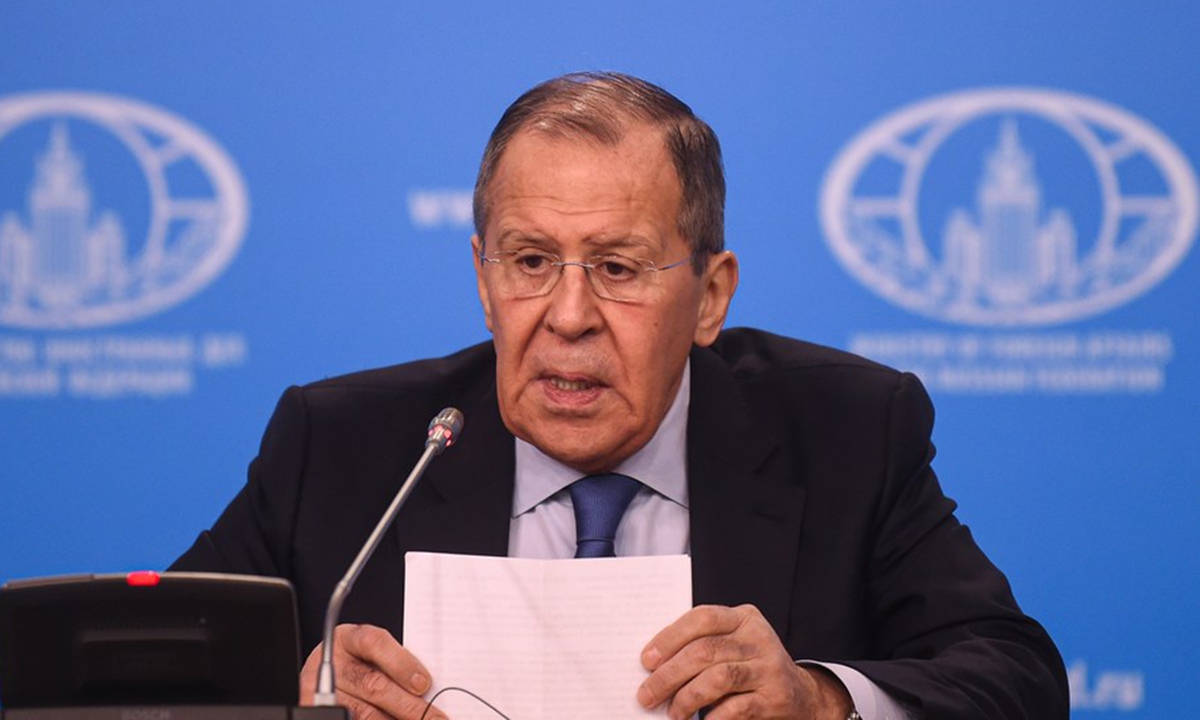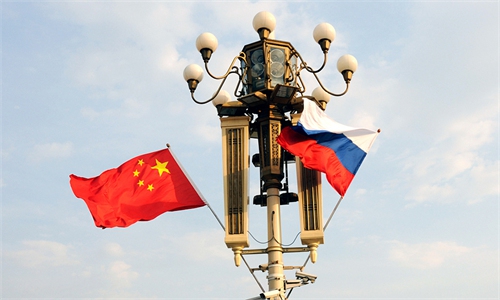
File photo: Xinhua
Editor's Note:
Russian Foreign Minister Sergey Lavrov is scheduled to visit China and South Korea from March 22 to 25, according to TASS. He will be visiting China on March 22 and 23, two days after the first China-US high-level meeting since Joe Biden took office. Why is Lavrov visiting the two countries at this point? How will China-Russia cooperation and common strategic interests develop after the visit? Can the US contain China and Russia at the same time? The Global Times sought the opinions of two Chinese experts on these issues.
Yang Xiyu, former Chinese diplomat and senior research fellow at the China Institute of International Studies
Visiting China and South Korea at this time reflects the interaction between major powers. After Biden came to power, the US has had frequent interactions with its allies. The US has also held the Quad summit, as well as the US-Japan and US-South Korea "2+2" meetings. The US is not only making plans to deal with China, but also with Russia. But Russia's diplomacy is very mature. During this period of time, Russia not only strengthened its deterrence against the US' European allies, but also continued its diplomatic layout.
This being the case, Lavrov's visits have two meanings. First, the visit is a traditional act between two strategic partners. Second, it is a gesture in response to the current new situation. The US, as a superpower, aims to gather its allies as much as possible and US Secretary of State Antony Blinken has named China and Russia as problems to be addressed. In this context, Lavrov's visit to China is obviously intended to counteract the US' moves. It is a diplomatic game.
As for South Korea, it is an important part of Russia's strategy on the Korean Peninsula. Russia is also working hard to strengthen ties with South Korea, which is a relatively special ally of the US because it has different security concerns with the US' other allies. Such a special status means that Russia sees great potential for deepening policy coordination with South Korea.
The US has shown its strategic misjudgment. It lacks the realistic ability and conditions to strike China and Russia at the same time. If the US wants to oppose two major global powers at the same time, then it is destined to lose, despite its leading comprehensive national strength. American people are also destined to lose.
But this does not necessarily mean China and Russia will jointly oppose the US, because China-Russia strategic cooperation is firstly an independent diplomatic exchange between the two countries. Lavrov's visit to China this time is to strengthen strategic communication and coordination with China, which goes far beyond the scope of targeting the US. To be honest, the US is not that important.
Besides, the axis of China's US policy is not confrontation, but to force a halt in the US' anti-China policies and make the US return to the right track of mutual respect and win-win cooperation. Likewise, Russia does not want to completely break ties with the US, but hopes to peacefully resolve problems.
Chen Yu, assistant research fellow at the Institute of Russian Studies at the China Institutes of Contemporary International Relations
Lavrov's upcoming visits to China and South Korea are partly because Russia wants to balance pressure from the West. The relations between Russia and the West have not been good recently. However, China and Russia share a comprehensive strategic partnership of coordination for a new era, and the two countries have support from the public in dealing with Western pressure.
As for South Korea, an ally of the US, it has maintained relatively good relations with Russia. In this context, Russia may also want to adjust relations with the West through ties with South Korea.
The US' alliance system is very fragile. The US attacked China, trying to rope in Japan and South Korea during "2+2" meetings with the two countries. However, South Korea refused to support the US and its allies' anti-China rhetoric. Now, soon after the US officials left South Korea, Lavrov is visiting the country. But indeed, the US' alliance system in East Asia will not be essentially threatened because South Korea is still dependent on the US for security. However, South Korea still wants to balance relations with major powers. It will not blindly turn to the US.
The US cannot simultaneously contain both China and Russia. The Biden administration has adopted irrational policies since it came into power. The US has many domestic problems but the country is not focusing on resolving these problems, but on containing two major global powers. If such a policy lasts for a long time, the US will pay a heavy price.
China and the US have shown their tough attitudes during the Alaska talks, and new quarrels and disputes have broken out between Russia and the US. Under such circumstances, China and Russia can work together to fight against US hegemony, jointly balance pressure from the US and inject justice into the world political system.
In the future, China and Russia will continue to strengthen political cooperation. And if the US is provocative, China and Russia will definitely respond through means including joint military exercises. The two countries will also strengthen cooperation in Eurasia, which is also an important way of dealing with the US pressure.

